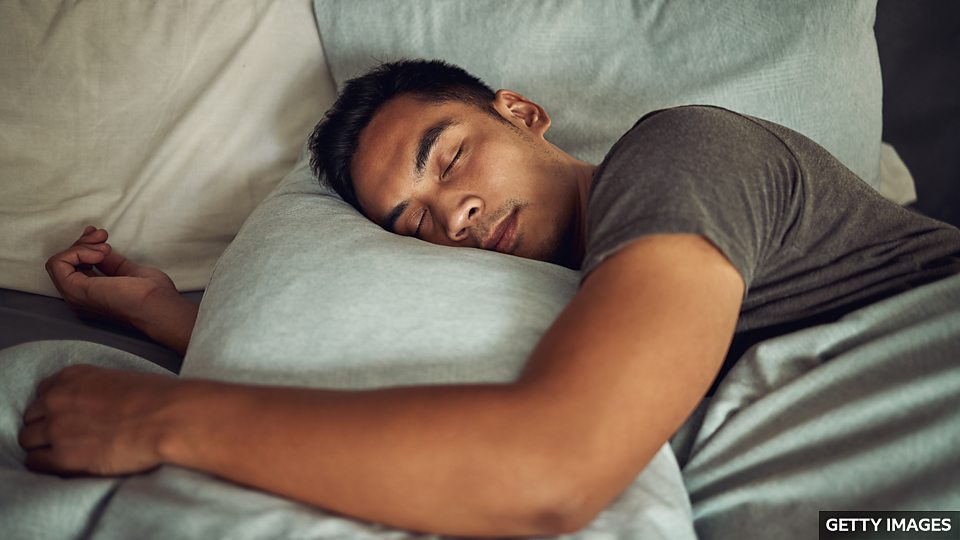季节会影响我们的睡眠吗?根据最新研究,答案是肯定的。本期节目介绍我们的睡眠模式是如何演变而成的,以及光和温度是否会对睡眠时间产生影响。
词汇:sleep 睡眠
After a long winter, the arrival of spring can be a welcome relief. The days grow longer, the temperatures increase, and the natural world around us comes to life again. But when the seasons change, our sleep patterns change with them.
New research suggests that humans may need more sleep in the winter than they do in the summer. A German study found that participants slept an hour longer in December than in June, regardless of their exposure to light. "Our study shows that even while living in an urban environment, with just artificial light, humans [experience] seasonal sleep," says Dieter Kunz, one of the study's lead authors and head of the clinic of sleep and chronomedicine at St Hedwig Hospital in Berlin, Germany. The study found that the participants experienced seasonal variations in their rapid eye movement sleep, also known as REM sleep, as well as in their slow wave sleep, also known as deep sleep. REM sleep, which is when we dream and our heart rate increases, was 30 minutes longer in the winter than during the summer. Slow wave sleep, which is when our muscles are repaired, our immune system is strengthened and our memory is consolidated, was 30 minutes shorter in September than in February.
But why do our bodies and brains need more rest at certain times of year? The answer could lie in our evolutionary past. That's according to Neil Stanley, who's a sleep expert at Sleep Station, an online provider of cognitive behavioural therapy for insomnia. "We have evolved to dark-light cycles, so when we wake up on a winter's morning and it's dark, our brain is going 'I can't do anything… there's no point leaping out of bed.'" Particularly in summer, temperature also plays a role – our bodies require a skin temperature of between 31-35 degrees centigrade [Celsius] for a good night's sleep, but this can be harder to control during the warmer months.
Of course, nowadays, it is our school and work times – not the Sun – that determine when we get up in the morning. But, as autumn approaches, it seems we now have a good excuse for an early night.
词汇表
relief (不快后的)解脱
come to life 复苏,恢复生机
sleep pattern 睡眠模式
exposure to 接触
artificial light 人造光
seasonal sleep 季节性睡眠
chronomedicine 时间医学
variation 变化
rapid eye movement sleep 快速眼动睡眠
slow wave sleep 慢波睡眠
deep sleep 深度睡眠
repair 修复
immune system 免疫系统
consolidate 加强,加固
rest 休息
cognitive behavioural therapy 认知行为疗法
insomnia 失眠
evolve 逐渐进化
dark-light cycle (昼夜)光暗循环
leap out of bed 跳下床,起床
early night 早睡
测验与练习
1. 阅读课文并回答问题。
1. Is seasonal sleep affected by light?
2. True or False? Participants experienced seasonal variations only in REM sleep.
3. In total, how much longer do we need to sleep in winter compared to summer, according to the study?
4. How does our past influence our sleep patterns?
5. Why can it be harder to sleep in the summer months?
2. 选择意思恰当的单词或词组来完成下列句子。
1. I think photographs look better when taken in natural light, not _______.
relief sleep pattern exposure to artificial light
2. We are studying the global temperature _______ over the past 100 years.
artificial lights variations dark-light cycles early nights
3. It took a long time to _______ the damage after the flood.
come to life repair consolidate rest
4. The idea for the business _______ from a small coffee stand to a bakery.
came to life consolidated evolved leapt out of bed
5. You look exhausted! You should get an _______ if you can.
sleep pattern seasonal sleep deep sleep early night
答案
1. 阅读课文并回答问题。
1. Is seasonal sleep affected by light?
No. According to Dieter Kunz, "even while living in an urban environment, with just artificial light, humans [experience] seasonal sleep."
2. True or False? Participants experienced seasonal variations only in REM sleep.
False. Participants experienced seasonal variations in REM sleep, as well as in slow wave sleep.
3. In total, how much longer do we need to sleep in winter compared to summer, according to the study?
One hour. Both REM and slow wave sleep were 30 minutes longer in the winter months.
4. How does our past influence our sleep patterns?
Humans evolved to dark-light cycles, says Neil Stanley.
5. Why can it be harder to sleep in the summer months?
Because our bodies require a skin temperature of between 31-35 degrees centigrade [Celsius] for a good night's sleep, and this can be harder to regulate when it's hot.
2. 选择意思恰当的单词或词组来完成下列句子。
1. I think photographs look better when taken in natural light, not artificial light.
2. We are studying the global temperature variations over the past 100 years.
3. It took a long time to repair the damage after the flood.
4. The idea for the business evolved from a small coffee stand to a bakery.
5. You look exhausted! You should get an early night if you can.


 3342次下载
点击下载
3342次下载
点击下载
 2621次下载 点击下载
2621次下载 点击下载
 4734次下载 点击下载
4734次下载 点击下载
 1854次下载 点击下载
1854次下载 点击下载
 1391次下载 点击下载
1391次下载 点击下载
 1391次下载 点击下载
1391次下载 点击下载











